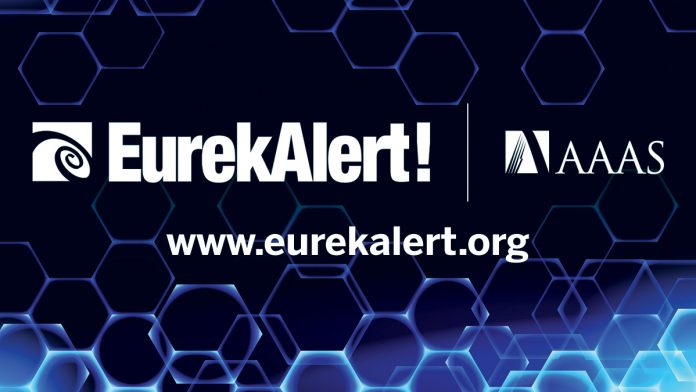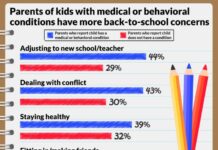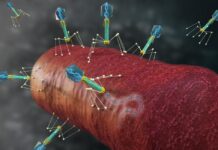The Institute for Implementation Science in Population Health (ISPH) at the CUNY Graduate School of Public Health and Health Policy (CUNY SPH) has received $3.4 million in emergency funds from the National Institute of Allergy and Infectious Diseases (NIAID), part of the National Institutes of Health, to support its ongoing national longitudinal COVID-19 study. The Communities, Households and SARS/COV-2 Epidemiology (CHASING) COVID study has been in the field since March 28, 2020, and is one of the earliest national longitudinal studies of COVID-19 to be launched since the pandemic began spreading in the United States.
The CHASING COVID study follows a cohort of thousands of adults residing in the U.S. recruited using internet-based strategies. The cohort represents a geographically and socio-demographically diverse sample of the U.S. adult population: all fifty U.S. states are represented in the cohort, as are the District of Columbia, Puerto Rico, and Guam.
In terms of demographics, 34 percent of participants are 60+ years old, 35 percent are Black or Hispanic, and 47 percent are men. Nearly 10 percent of participants are frontline workers in healthcare or other essential employees such as first responders, nursing home staff, grocery/food services, or transportation workers.
“We are more than six months into the COVID-19 pandemic, and there are still many critical questions, some of which can only be answered with longitudinal epidemiologic studies,” says Dr. Denis Nash, Distinguished Professor of Epidemiology at CUNY SPH and a Principal Investigator of the CHASING COVID study. “These questions include the extent to which having antibodies against SARS-CoV-2, the virus that causes COVID-19, provides short- and long-term protection against reinfection, as well as understanding which factors drive COVID-19 incidence in different phases of the pandemic.”
In addition to COVID-19 outcomes, the CHASING COVID study is also gathering critical data on mental health, employment, and economic outcomes, and factors that influence them over time.
“The response to the COVID-19 pandemic globally has been unprecedented, resulting in many challenges to individuals, households, and communities beyond the virus itself,” Dr. Nash says. “We believe the knowledge to be generated by our cohort study can inform the response to this pandemic and future pandemics.”
The CHASING COVID study will follow participants through July 2022. Participants are contacted at one to two month intervals to assess their experiences with COVID-19, including symptoms, testing and diagnosis, preparedness and the extent to which they are engaging in behaviors with the potential to slow the spread of the pandemic, mental health, and economic and social impact. Dried blood spot specimens are self-collected at home by participants every two to three months and returned via mail for antibody testing, which is conducted using serologic tests that have received Emergency Use Authorization from the FDA, and have been modified and validated for use with dried blood spots.
“To control the coronavirus pandemic, we need to understand the impact of the public health response at several levels,” says Dr. Christian Grov, the other Principal Investigator of the study and Professor and Chair of the CUNY SPH Department of Community Health and Social Sciences. “This study can monitor antibody development and persistence as well as characterize asymptomatic cases of SARS-CoV-2 infection.”
More than 6,500 people have been sent at-home specimen collection kits as of July 10, and nearly 3,500 participants have submitted their first specimen for antibody testing. The study team is aiming to get at least 5,000 baseline specimens before sending out a second round of kits to participants.
“Our team at the CUNY ISPH worked day and night, while on lockdown in the epicenter of the COVID-19 pandemic, to launch this large national study,” says Nash. “It was a huge lift, but we knew it would be important for New York and the rest of the country to chase after this virus and learn as much as possible to help us be prepared for whatever is coming next.”
Emory University and Molecular Testing Labs are also collaborators on the study.
###
Learn more about the CHASING COVID study and sign up for study updates at https:/
The study reported in this press release was supported by NIH under Award Number UH3AI133675.
About the Institute for Implementation Science in Population Health at the City University of New York The CUNY Institute for Implementation Science in Population Health (ISPH) was founded on the notion that substantial improvements in population health can be efficiently achieved through better implementation of existing strategies, policies, and interventions across multiple sectors. We study how to translate and scale-up evidence-based interventions and policies within clinical and community settings in order to improve population health and reduce health disparities. CUNY ISPH. Pursing population health gains through better implementation. http://www.
About the CUNY Graduate School of Public Health and Health Policy The CUNY Graduate School of Public Health and Health Policy (CUNY SPH) is committed to teaching, research, and service that creates a healthier New York City and helps promote equitable, efficient, and evidence-based solutions to pressing health problems facing cities around the world. For more information, visit sph.cuny.edu. Follow us on Twitter: @CUNYSPH.
TDnews















